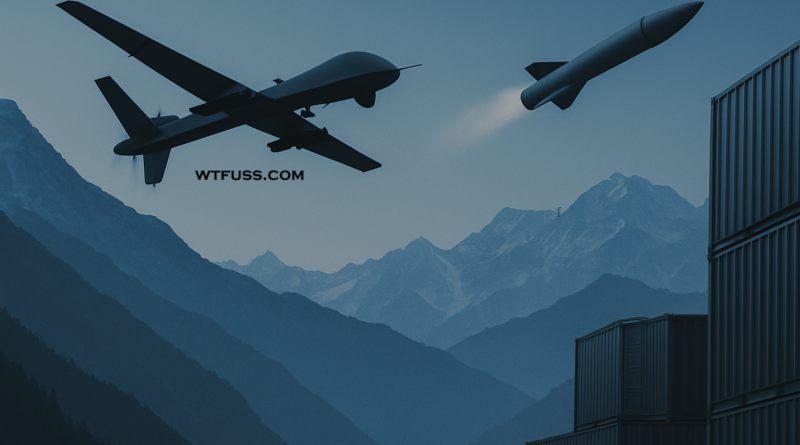Operation Sindoor: A Strategic Success or a Missed Opportunity?
In April 2025, a devastating terrorist attack in Pahalgam, Kashmir, claimed the lives of 26 tourists, sending shockwaves across the nation. In response, the Indian government launched Operation Sindoor, a swift 23-minute precision strike targeting terrorist infrastructure in Pakistan. The operation reportedly neutralized over 100 militants, including key figures from Jaish-e-Mohammed and Lashkar-e-Taiba.
The Heroin Trail: From Mundra Port to Terrorist Hands
Investigations into the massive heroin seizure at Adani’s Mundra Port revealed a disturbing nexus between narcotics smuggling and terrorism. The National Investigation Agency (NIA) uncovered that proceeds from the ₹21,000 crore heroin consignment were funneled to Pakistan-based terror outfits like Lashkar-e-Taiba. The drugs, concealed as semi-processed talc stones from Afghanistan, were imported through the Adani-controlled Mundra Port, raising questions about port security and oversight.
Commercializing Defense: The Role of Drones
Operation Sindoor showcased India’s growing prowess in defense technology, notably the use of indigenous Akash missiles and suicide drones. While these advancements signify strategic growth, concerns arise over the commercialization of defense assets. Companies like Adani have been instrumental in developing these technologies, blurring the lines between national security interests and corporate profits.
Diplomatic Interference: Trump’s Ceasefire Claim
The abrupt ceasefire following Operation Sindoor drew international attention, particularly due to former U.S. President Donald Trump’s claims of brokering peace between India and Pakistan. Critics argue that Trump’s involvement, especially given his family’s 60% stake in a cryptocurrency firm that recently inked a deal with Pakistan, presents a conflict of interest. Indian leaders, including PM Modi, emphasized that the ceasefire was conditional and based on Pakistan’s future actions.
Unmet Objectives: The Elusive Terrorist Leaders
Despite the operation’s tactical success, some objectives remained unfulfilled. One or two key figures were neutralized, but the broader goal of dismantling terrorist networks remains ongoing. The sudden halt in operations, possibly influenced by international diplomacy, left many questioning whether the mission achieved its full potential.
Media Misinformation: Public Turns to Alternative Sources
In the aftermath of Operation Sindoor, mainstream media outlets faced criticism for disseminating misinformation and sensationalized reports. Many television news channels relied on unnamed “sources” and unverified footage, leading to public distrust. This erosion of credibility prompted viewers to seek information from smaller news channels, independent blogs, and social media platforms, which were perceived as more transparent and reliable. The shift underscores a growing demand for accountable journalism and highlights the public’s discernment in navigating media narratives.
Political Silence: Economic Interests at Play?
Prime Minister Modi’s measured response post-operation has been interpreted by some as a strategic silence, possibly influenced by economic considerations. With major corporations like Adani and Ambani having significant stakes in international trade and defense, aggressive military actions could jeopardize business interests. This intertwining of politics, security, and commerce raises concerns about the true drivers behind national security decisions.
Conclusion: A Call for Transparent Governance
Operation Sindoor stands as a testament to India’s military capabilities and resolve against terrorism. However, the complexities surrounding the operation—from narcotics funding terrorism to corporate involvement in defense and international diplomatic pressures—underscore the need for transparent governance. As India navigates these multifaceted challenges, ensuring that national security decisions remain free from undue economic or political influence is paramount.


